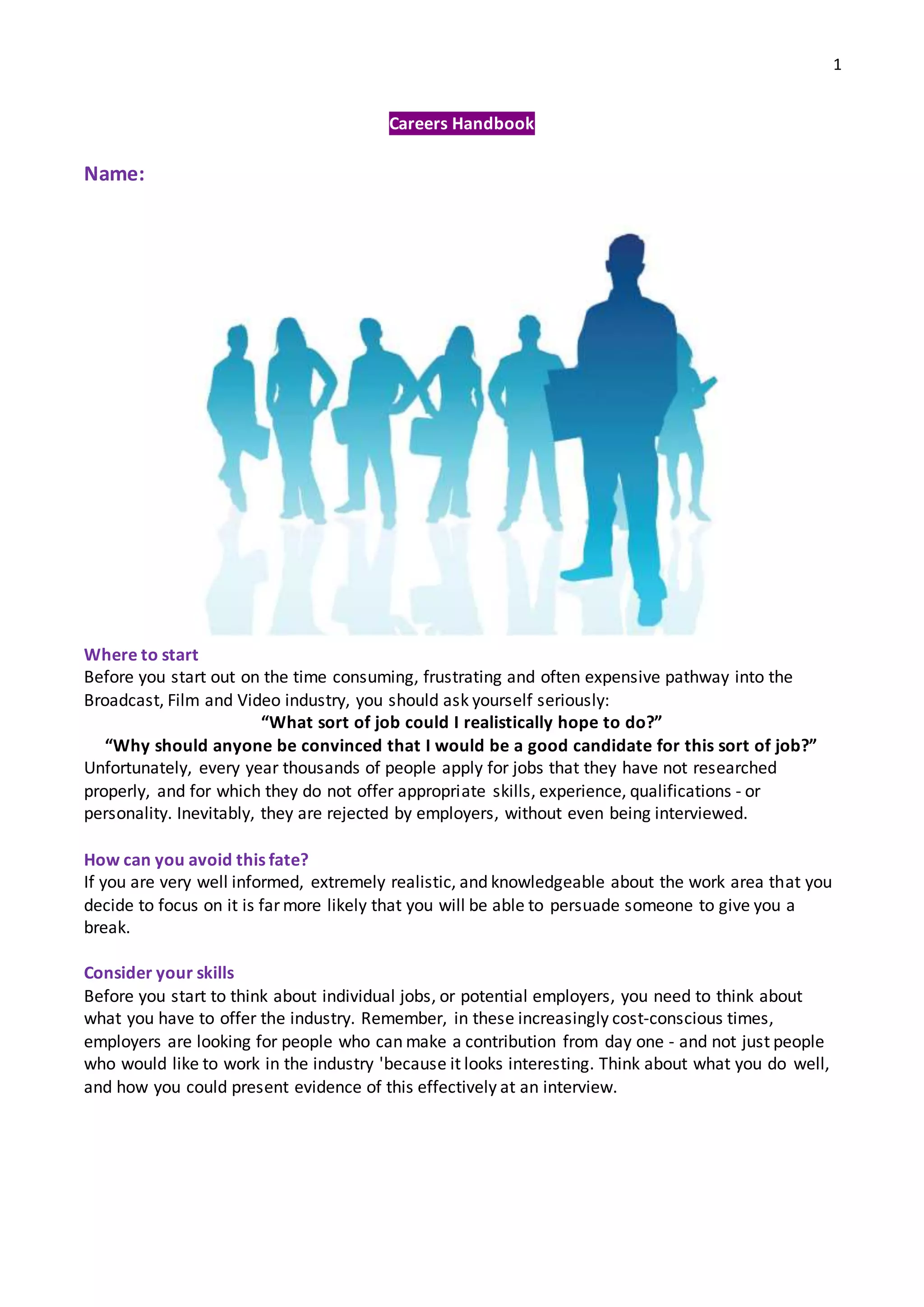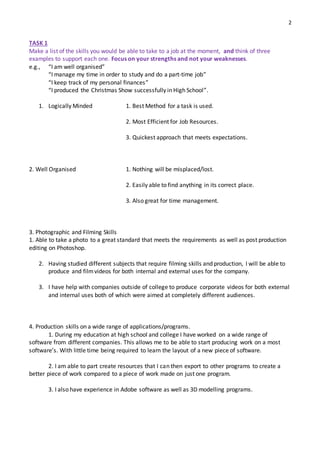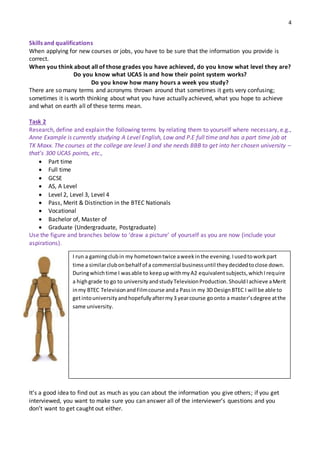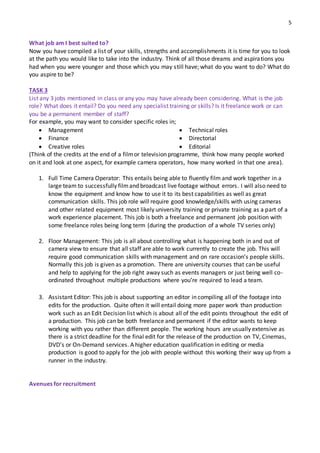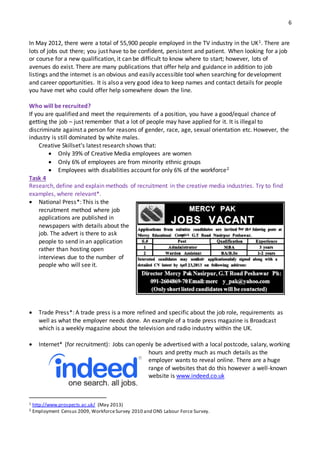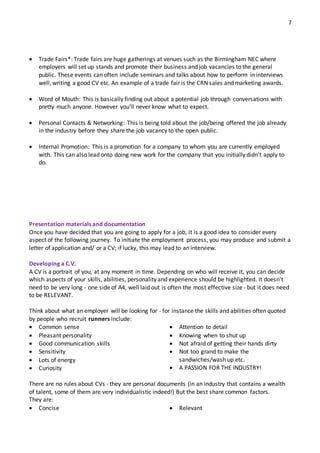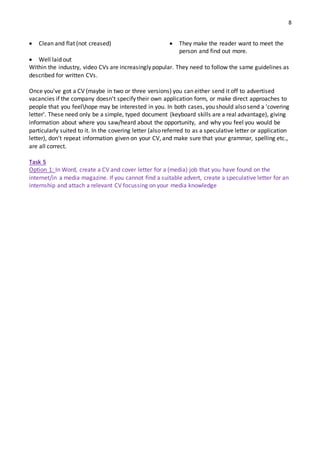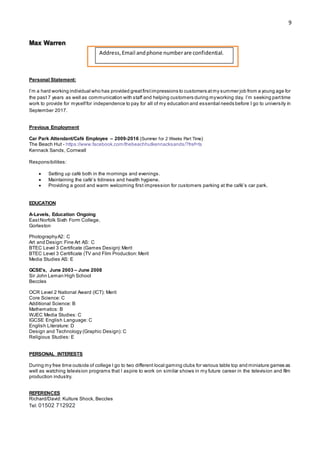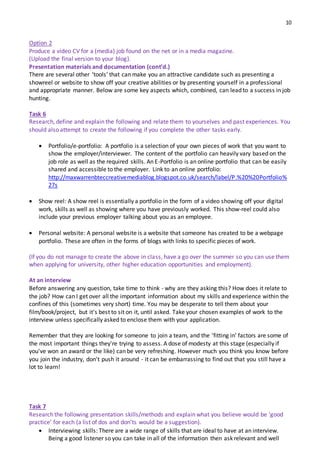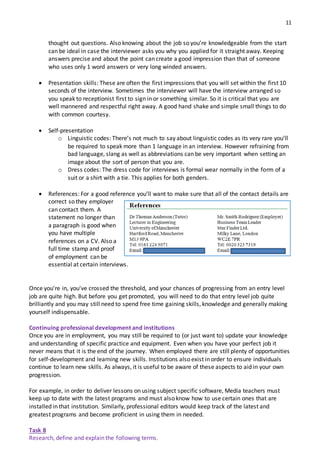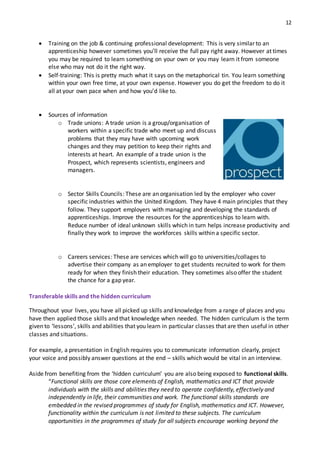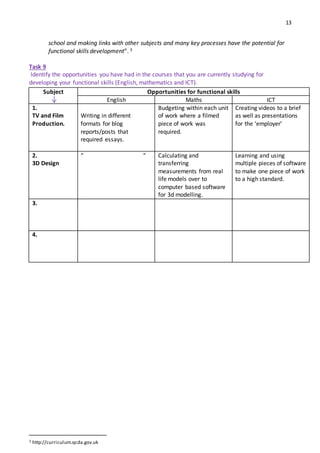This document provides guidance to students on preparing for a career in the broadcast, film, and video industry. It instructs students to realistically assess their skills and consider job roles they are suited for. The document contains exercises where students list their strengths and relevant experience, research common terms used in applications and qualifications, and investigate potential job roles and avenues for finding work, such as using trade publications and websites to locate opportunities. The overall message is that thorough preparation is important to pursue career opportunities in this competitive field.
